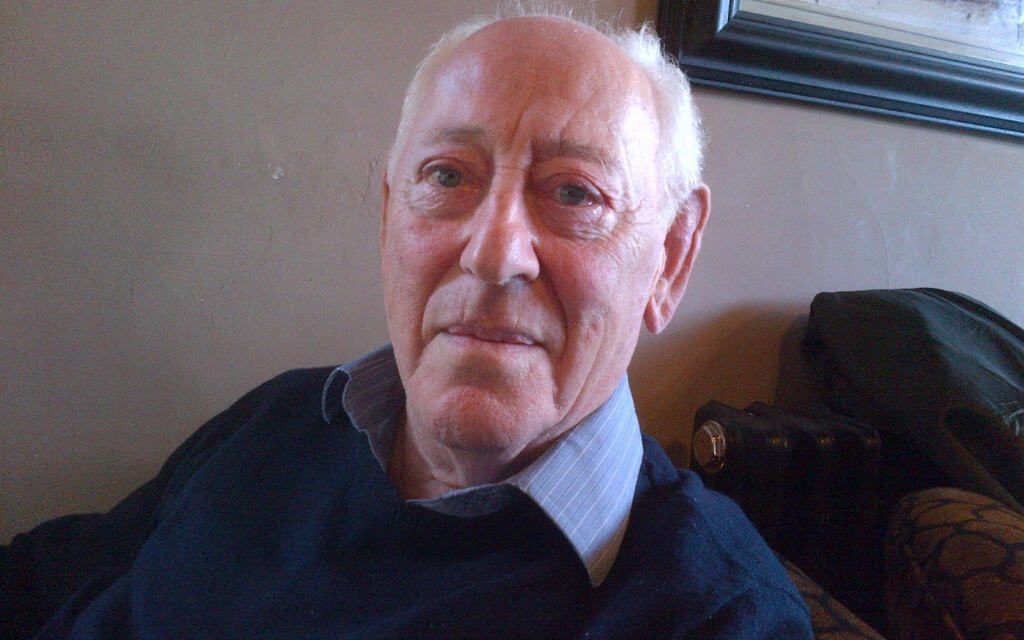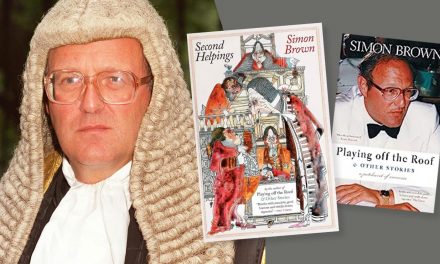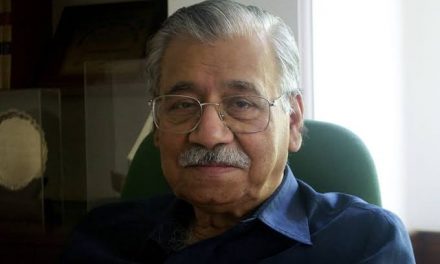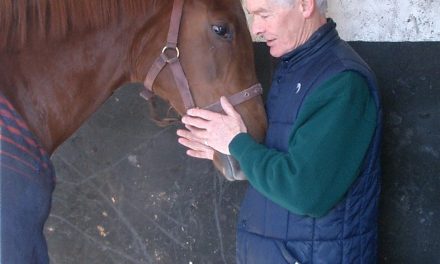Although it is a great privilege to have been asked to speak about Ben Hytner’s legal career, it is more than a little daunting. He practised at the Bar for nearly 60 years and spent over 40 years as a working silk, appearing in every type of case at every level of court. He was Head of Chambers for over 30 years and, for a term of three years between 1984 and 1987, the Leader of the Northern Circuit. He was a Bencher of the Middle Temple for 45 years and one of its Readers in 1995. His judicial work was equally astounding. He was a Recorder for 25 years, a deputy High Court judge for 22 years and the Judge of Appeal in the Isle of Man for 17 years. Running through everything he did was an exceptional level of humanity and empathy for others. Let me say something about him as a barrister, as a judge and then as a mentor to the Bar generally and members of his chambers in particular.
Ben was Called in 1952, having completed national service. Joyce tells me that he earned £250 in his first year and, to their great delight, £500 in his second year. To provide context, their house in Didsbury, bought in 1954, cost £2,000. He did every type of work and travelled far and wide across the circuit. In 1970, he took silk and his career as an advocate demonstrated that he reached the highest levels of the profession, combining an understanding of all types of litigation with the ability to go to the very heart of a case and a deep understanding of how judges tick.
You have heard from Nick about Ben’s phenomenal ability quickly to pick up the essence of even the most difficult of cases. He could always see the big picture or, as one who was led by him has said, he could climb to the top of the mountain above the clouds and see the direction of travel for a case.
It was not just in crime. He was the senior silk in the year-long trial seeking to establish that childhood leukaemia had been caused by exposure to radiation of their fathers at Sellafield. Stephen Sedley was the second silk due to deal with the epidemiology. Just before the trial, Stephen was offered an appointment to the High Court Bench. Ben did not turn a hair, saying that the Bench needed Stephen more than the case did. Much, however, was based on the epidemiology and, in particular, on Sir Martin Gardner who had produced a study showing a strong correlation between the level of exposure of the men and the increased risk of their children developing leukaemia.
On the other side was the renowned Sir Richard Doll, who had demonstrated the link between smoking and cancer. Given Sir Richard’s eminence, Ben conducted the cross examination. Ben took him through all the various possible confounding factors and Sir Richard ruled them all out. So, said Ben, that leaves you with chance. What, Ben asked, was the prospect that the findings were due to chance? ‘Highly unlikely’ said Sir Richard. Ben said that only leaves ‘fiddling the books’. This was all the more serious accusation to make because Sir Martin had died shortly before the trial. Thoughtfully and with consideration both for the witness and Sir Martin, Ben proposed an adjournment for half an hour to allow Sir Richard to collect his thoughts. Did he really want to accuse his former colleague who could not defend himself of being a cheat? After what Martyn Day describes as possibly the most tense 30 minutes of his working life, all returned to court. Ben put the question again and Sir Richard said that was indeed what he was saying. It is that concern and consideration that marked him out as an exceptional advocate not trying to trick or trap or force an ill-considered answer.
He was equally good with clients. We have all known clients who felt they knew which arguments to advance and were very clear that, as they were paying, their views should prevail. Ben led me in a case with one particularly aggressive client who insisted that the case was run in the way in which he wanted it run. Ben did not argue. He merely said: ‘You know, I may not be a very good barrister but, believe me when I say, I am the best barrister you’ve got.’ We ran the case as Ben advised.
He also kept an eye on the judge. Ben was the first silk to lead me: I was in my second six months. He was one year in silk and needed a kite junior – no longer required – after that year. It was a contract case before a High Court judge in an overly heated small court in St George’s Hall in Liverpool. Half-way through the case, he turned to me and said: ‘Brian, drop Chitty on the floor; the judge looks as though he is about to nod off’. That was my sole contribution to the case.
Years later, in the Court of Appeal in a very tedious civil appeal, Ben could see the judges losing interest. Recognising this, he sought to lighten things up by inviting the Court to approach the matter by ‘utilising that very useful forensic implement – the Broad Brush’. That did the trick, and a glorious victory followed.
He was also a formidable lawyer appearing in ground-breaking cases in the House of Lords. I pass over R v Smith and Anderton v Ryan on attempts and handling stolen goods but focus on his work for the bereaved and injured in the Hillsborough tragedy and the trilogy of cases against the Chief Constable of South Yorkshire, which sought to extend the recovery of damages for spectators (Alcock), child victims (Hicks) and junior police officers on duty in the ground (White). There were many other cases both in the House of Lords and the Court of Appeal, mainly in personal injury and damages but extending to crime, negligence in care proceedings, fairness in family contempt of court cases. There was nothing he was not prepared to take on, all with consummate professionalism and great skill.
Ben took his humanity and empathy into his work on the Bench. In the interests of brevity, I focus on the 17 years he spent as the Judge of Appeal in the Isle of Man, sitting with the Deemster not involved in the trial. The most famous of his cases was O’Callaghan v Teare which concerned a young Glaswegian who had drunk too much and assaulted his victim, leading to a sentence of 4 strokes of the birch. He wanted to abandon his appeal, but Ben was having none of it and in a very clever judgment effectively spelt the end to that barbaric punishment on the Island. He also covered complex international cases as the Island became an offshore financial centre dealing with various cases from the collapse of the Savings and Investment Bank. He developed Manx law on provocation as a defence to murder, the law of contempt on the Island, the ethical responsibilities of advocates standing up to difficult clients and judges, Manx land law and the relationship between Acts of the UK Parliament and Acts of Tynwald which is still cited today. Between the ages of 78 and 84 he was the expert adjudicator for the Asbestos Trust. Again, a truly formidable legacy.
I end with Ben as a mentor and Head of Chambers. He truly loved the Bar and was never happier than when he was encouraging youngsters – in which number I include myself – in the ways of the profession. I have been inundated with stories about his kindness to others both in and out of chambers and his willingness to take time to deal with their problems and involve them with work when they were without. He told juniors to grow a skin ‘as thick as a Rhino’ because that was what the Bar required. He was always available and quick to defend members of chambers if complaints arose from disgruntled clients. He always explained in a way that satisfied the litigant and the complaint vanished. Descriptions of him include ‘modest and humble’ and full of ‘wise words and kindness’.
To be Head of Chambers for 30 years took some doing and many stories reveal his benign dictatorship. There was once a chambers meeting booked for 5:00pm on a day he was due to go to the theatre. There were many items on the agenda, including the question of a new tenant and adjustments to rent. At 5:00pm on the dot, he started the meeting with only 10 people present. He asked those assembled to agree the minutes: they did. The senior clerk passed a note that the meeting was not quorate. He screwed up the note and then dealt with the new tenant. No discussion. He passed through the agenda as more arrived slightly bemused – but still not a quorum. He completed the meeting and went to the theatre but what is critical is that nobody ever raised the slightest objection – that was how Ben was revered.
He was equally superb with the staff. One day, the junior clerk decided to email a photo of a scantily clad young lady bending over in front of a TV and video twiddling with the machines, with the caption, ‘if you are having trouble with your TV I can recommend an engineer’. He meant to send it to the other junior clerks but mistakenly sent it to ‘all barristers’. He ran into the senior clerk panicking and asking if he was going to be sacked as any number of female tenants might be offended. Ben was told what had happened; he smiled and said, ‘oh dear, let me think about it’. Five minutes later, he replied to the email to all barristers, saying ‘I’m having lots of problems with my TV, could you send me her number please’. It was never mentioned again and, again, nobody complained.
In every aspect of his working life, Ben had the measure of the people and the law; he had the empathy and humanity to deal with everyone. He was a truly great man. We will not see his like again.
This is a transcript of Master Brian Leveson’s eulogy for Master Ben Hytner, kindly shared with permission from Master Leveson and Joyce Hytner.





